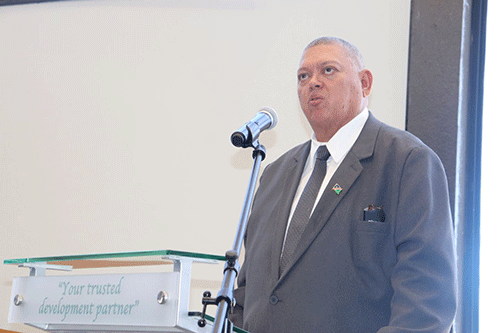WALVIS BAY – The fishing industry is battling to adjust to the escalating fuel prices, and has been forced to streamline operations as a mitigating measure and prevent job losses.
Some fishing companies over the weekend indicated that they might temporarily cease operations to regroup as the current fuel prices do not allow them to go out onto the fishing grounds. The fishing industry directly employs over 16 000 people, and thousands more in indirect jobs.
The latest fuel increase, effective from Wednesday, 6 July, saw petrol prices go up by 188 cents per litre and diesel by 134 cents per litre. The record-high fuel prices have been blamed on the mismatch between global oil supply and demand as more oil is now in demand, compared to the available market supply, as well as geopolitical tensions in oil-producing regions.
In March 2021, the price for a litre of petrol was N$12.65. Currently, it stands at N$22.28 per litre for petrol and N$22.77 per litre for diesel. Fuel costs over the last 18 months, according to the fishing companies, is now as high as N$15 million.
Previously, they would spend N$5 million over that period.
Representatives of the wet horse mackerel-processing company Princess on Friday told New Era that they were forced to recall both their fishing vessels due to the high fuel costs as well as other factors.
General manager Adolf Burger explained that they currently spent about N$250 000 per day on each vessel in terms of fuel, which amounts to almost N$15 million a month.
He said this cost is totally unaffordable.
“I had to recall our vessels. They even came back without any catches, as we also do not have demarcated fishing grounds for our industry,” Burger stated.
However, retrenchments would be the last resort, despite the fact that it is impossible for them to continue operations due to high fuel costs.
They also want to explore all necessary measures to make sure their more than 600 employees retain their jobs.
Peya Hitula from Tunacor said they have tried to mitigate the impact of high fuel costs.
He observed that the fishing sector is very sensitive yet important, and that mitigating factors are very tricky at this stage.
“We are still trying to recover from the impact of Covid-19, just to be hit with the fuel increase. We also don’t control fuel prices; we only control our operations, and have done our level best not to create a situation that can constitute job losses,” Hitula noted.
However, they are pressured by the costs of input products that are oil-based. Apart from that, he said it is also difficult for them to pass higher prices onto their customers.
“We have very good markets, where in certain instances they were able to assist and accept certain price increases. But these are marginal, compared to the overall increases. So, we will continue with efforts as this is not a Namibian problem but a global one that we are experiencing,” he continued.
Seawork’s financial director Jürgen Sander indicated that in the past, they would spent around N$5 million on fuel within 18 months for their active fleet of four vessels. However, the cost has now increased to N$10 million.
Apart from that, the fuel increase has likewise caused a ripple-effect, whereby everything commodity-based as well as repair costs increased.
“There is quite an additional increase due to fuel. Sadly, we can’t control the fuel increase but recognised that we, along with government, consumers and employees should find common ground to navigate these trying times”, he added.
Meanwhile, fisheries minister Derek Klazen, labour minister Utoni Nujoma and Erongo governor Neville Andre have met with some fishing industry stakeholders to discuss the challenges in the sector.
The trio indicated that they will meet with the rest of the industry as well as trade unions to see how they can prevent job losses.
“We can really see the industry is struggling, and should find a way to meet all stakeholders so that we reach an understanding to avoid job losses at all costs, ” Klazen said.


